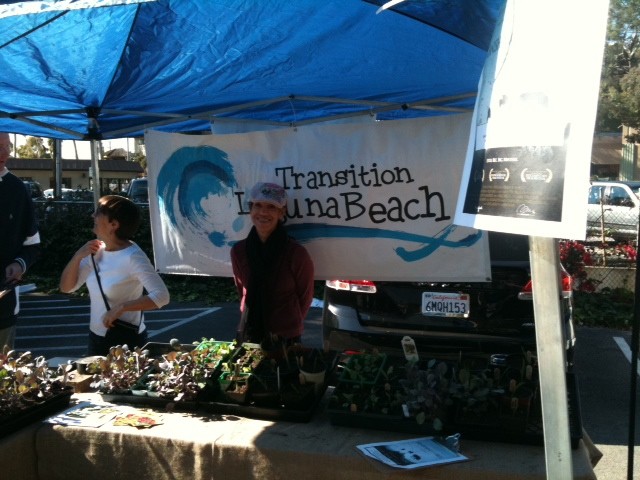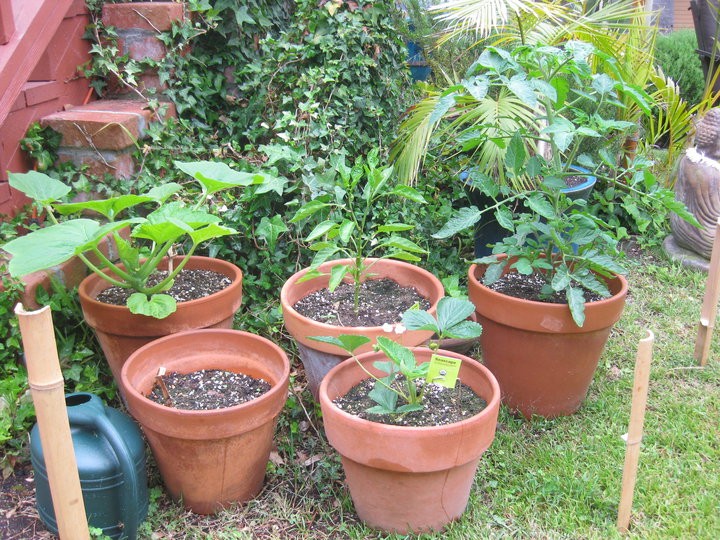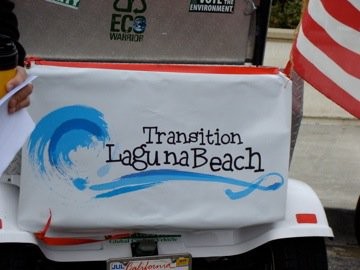
We're mocked a great deal in Orange County for our love of chain restaurants, convenience food and cheap, Sysco-type food. It doesn't seem to matter that our tastes mirror those of the rest of the country–the point is that food is trucked in from God-only-knows where, six or ten or fifteen steps removed from its growers by the time it reaches its consumers. So tortuous is the chain of custody of the food we eat that the U.S. government is attempting to enact food safety laws to require traceability of specific foods. The Center for Urban Education about Sustainable Agriculture (CUESA), who naturally have something to say about this, estimate that the average American meal travels 1,500 miles from farm (or factory) to plate.
Becky Prelitz, the wife of environmental consultant Chris Prelitz, read her husband's book Green Made Easy: The Everyday Guide for Transitioning to a Green Lifestyle and realized something had to be done.
]

Prelitz, no stranger to the green movement, went looking for like-minded people. She found a group called the Transition Network, people working toward the lofty goal of making their towns fossil fuel-free. While the bulk of oil being used in the everyday life of a town is used for transportation, heating and the like, food accounts for a great deal of oil use, whether from transportation of water and fertilizer to the fields or from the eventual transportation to distribution centers.
Prelitz and six collaborators formed the first Transition group in Orange County–both Santa Monica and Santa Barbara are Transition towns–to try and reduce (and, eventually, eliminate) Laguna Beach's dependence on oil. Action groups formed around problems such as trash, transportation (anyone who's ever tried to drive through Laguna Beach in summer can attest to the need for alternative infrastructure) and food. The group has grown from six to more than 450 in the last two and a half years, with 30-40 people signing up to the mailing list per month.

Farmers' markets are, of course, a good place to cut down on the carbon
footprint of food, but even our farmers' markets invite vendors from San
Joaquin, Fresno and further north. It's pushing the limits of reason to
call asparagus from the Sacramento River delta, 350 miles away, local.
Asking the staff at the large chain market where the produce marked
“local” is actually from is usually an exercise in frustration. The answer? Home gardens, and more specifically, home gardens that produce results people can eat.
“You have to make it as fun and as compelling then what they are doing now; you need to be creative,” said Sean McCracken, leader of the TLB Food Group. “Making it social and community building with food and drink helps in this cause.”
Most people will come across the TLB Food Group at the stand they set up on a monthly basis at the Saturday farmers' market on Forest Ave. between Broadway and Ocean Ave.; the next appearance will be on Saturday, December 18. The stand is set up in the overflow area north of the main market (through a fence), but is worth looking for.
[Currently, a staff of volunteers sell winter vegetable seedlings that have been started in backyards and volunteer gardens throughout the city and are suited for the coastal soil and weather–currently things like peas, spinach, lettuces and garlic. When the spring planting season comes, TLB hopes to make a weekly appearance at the market.
The group has planted a school garden at El Morro Elementary School in Laguna Beach and, armed with its newly-minted non-profit status, is looking for donors of land and a greenhouse to allow larger-scale planting of seeds so they'll be ready in the spring. They've reached out to Slow Food Orange County and the 75-year-old Laguna Beach Garden Club (which, coincidentally, started up to encourage denizens to plant victory gardens).

Not everyone can plant a large garden; besides the outreach at the weekly Saturday farmers' market, Transition
Laguna Beach is proposing partnerships with the farms in the immediate vicinity–there are five within 20 miles–to connect truly local produce with people who are interested in the cause but who are prevented from planting by landlords or HOA rules. The goal is to set up CSA deliveries that can be parceled out in smaller portions, along with recipes and workshops based on what's fresh and available at the time.
In addition, the group puts together some six events a month, ranging from a screening of “Vanishing of the Bees” (at the South Coast Theatre, tomorrow at 6:30 p.m.), to construction of rain barrels to ease the water needs for a garden (Saturday at 9 a.m.). They offer workshops on how to store and prepare produce from the garden, and recently held a workshop on raising chickens in yards (a practice that is legal in most Orange County cities, in stark contrast to our suburban reputation).
TLB Food Group appears to be a group of people–rara avis–with a reasonable sense of scope and a concrete plan of action. Rather than attempting to boil the ocean, they are taking steps to show Laguna Beach that it's possible to take at least a portion of your food to the most local level possible–your own yard.
If you'd like information on Transition Laguna Beach, visit their website at transitionlaguna.org or their Facebook page, or contact Sean McCracken at 949-290-5317. Thanks also to Gloria Broming and Ryan Goldsmith for their contributions.

